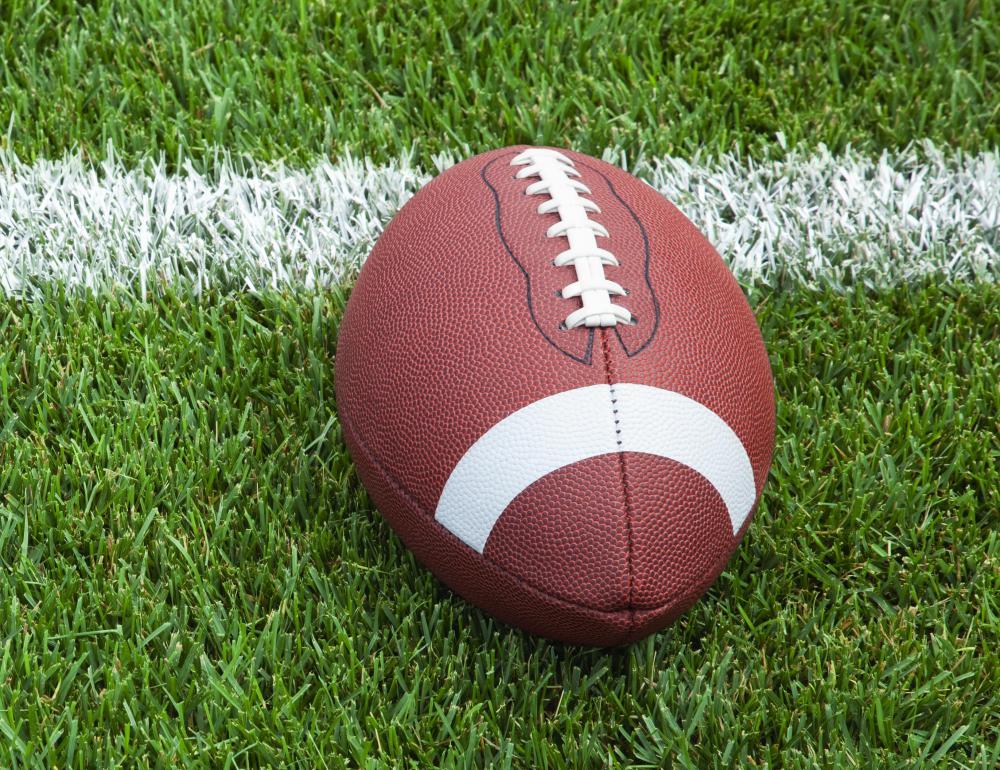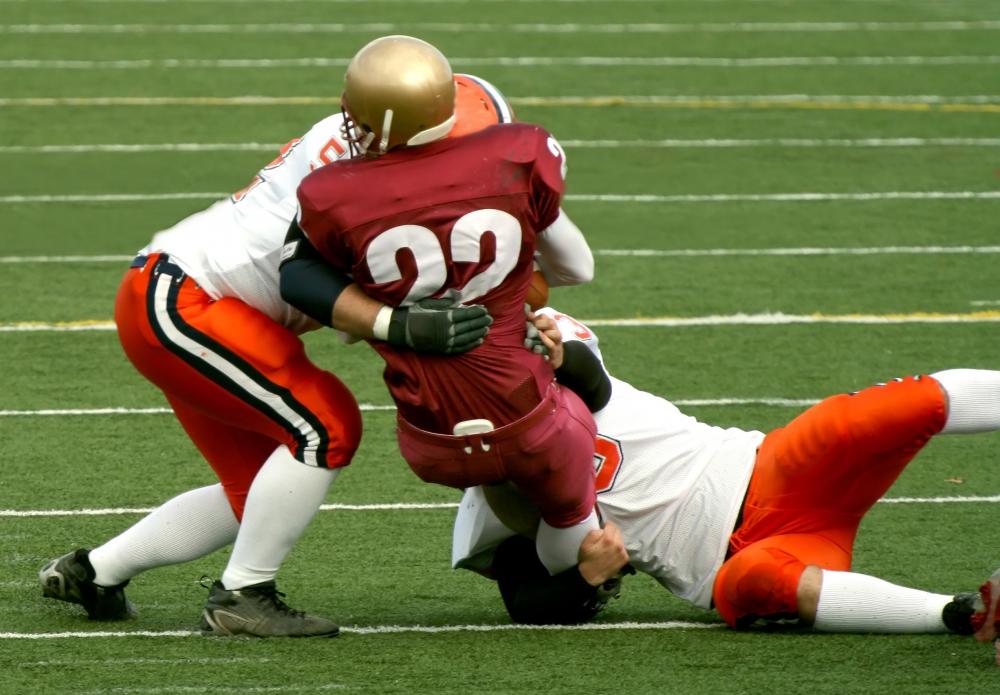At PracticalAdultInsights, we're committed to delivering accurate, trustworthy information. Our expert-authored content is rigorously fact-checked and sourced from credible authorities. Discover how we uphold the highest standards in providing you with reliable knowledge.
How Do I Become a Sports Analyst?
In order to become a sports analyst, a person must combine a deep passion for sports with a comprehensive knowledge of his or her subject. In addition, a sports analyst must be comfortable writing or speaking about their opinions and research, whether with coaches, through a newspaper article, or on television. Some of the important steps needed to become a sports analyst include getting a college education in a relevant field, gaining practical training as a coach, athlete, or sports professional, choosing the right medium for a career, and focusing on a specific sport.
Most sports analysts have some type of formal education in a related field. Majoring in broadcasting, journalism, mass media, or communications can all provide an excellent background for a sports analyst. Some analysts also choose to major or minor in mathematics or statistics, which allows them to hone their analysis skills from a technical standpoint. In many cases, a bachelor's degree is sufficient for a student who wants to become a sports analyst. Alternatively, some sports analysts can eschew educational training if they work as professional or high-level college athletes or coaches.

In order to be considered a credible expert, sports analysts need insider information on their specialty field. Some analysts are able to gain an insider's perspective by becoming an athlete in high school or college, or even in the professional arena. Those with excellent leadership abilities, or a strong knowledge of tactics and training methods may prefer to become coaches instead. Another excellent way to gain practical experience is by becoming a referee for a sporting league. Working as an athlete, coach, or official can give valuable insight to a person who plans to become a sports analyst, as well as allowing him or her to make professional contacts within their field.

Another important decision a sports analyst faces is which medium to explore professionally. In print media, sports analysts may write articles for newspapers, magazines, and blogs that pertain to the world of sports. Broadcast professionals can work as television or radio game announcers, anchors on sports news shows, or freelance experts that are brought in to cover specific topics in sports. Finally, a sports analyst may work directly with a team, analyzing both the team and its opponents in the hopes of improving team performance. Choosing a medium can help a person who wants to become a sports analyst focus his or her training, education, and career choices to best fit skills and interests.

While some sports professionals, such as sports anchors, need to be fluent in the language of all sports, many sports analysts have a particular area of expertise. Choosing a sport to focus on may be easy for some aspiring analysts, as they may have a natural preference for one particular sport. Those with a passion for multiple sports can split their training and focus between several options, or choose to work on one area that may provide the best career potential. For instance, if a person loves both ice hockey and football, he or she may consider the current and future job market, opportunity for advancement, salary levels, and popularity of each sport before determining which specialty provides the best chance for a successful career.
AS FEATURED ON:
AS FEATURED ON:













Discussion Comments
Drentel - I don't agree with your line of thinking. However, if everyone played by your rules then that means a lot of men would be losing jobs as women's sports teams coaches and analysts. There are many factors that account for a good sports analyst and several of them are mentioned in the article. Each position should be filled by the best applicant for the job based on criteria such as that presented in the article.
Like the article said, an analyst is expected to be able to give the fans insight. Who better to give us the details of what goes on on a football field than a person who played football? Who better to give insight on women's volleyball than a former player?
I guess you might say that since a woman played basketball she can talk about men's basketball or women's basketball, and that's true. However, if you have the option, then it stands to reason that women will make better analysts for women's basketball and men will make better analysts for men's basketball.
Has anyone besides me noticed that the position of broadcast sports analyst is no longer just for men? There have been women analysts for women's sports for a long time, but women are now doing the same job for men's basketball games.
I was pleased with the progress women were making when I began to see women taking part as members of the primary broadcast teams at college games. Then I recently saw a woman working as an in-game analyst for a professional basketball game. I was surprised, and pleased.
Post your comments